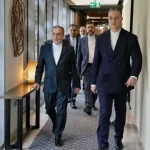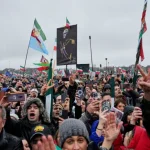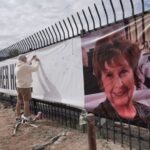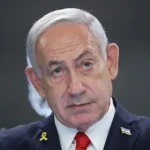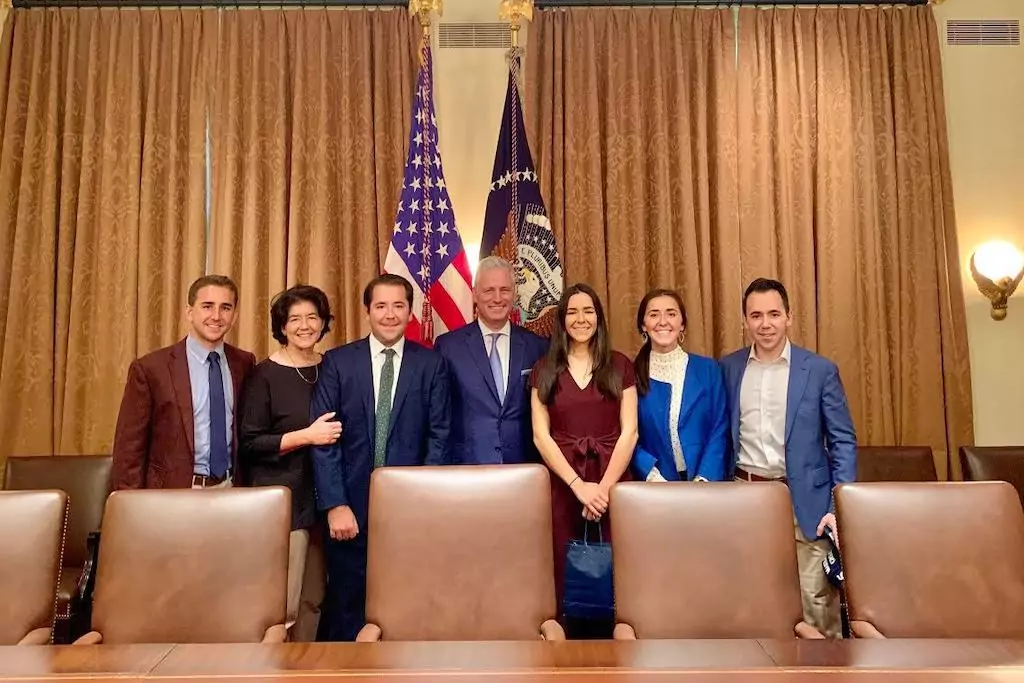
EXCLUSIVE — Sam Goodwin, an average millennial with a love for travel, would “never want to relive” the 62 days he spent in a Syrian prison unsure if he would ever see his family and friends again, yet he “would never want to give up everything that’s come from it.”
Prior to his detention, Goodwin was on a mission to visit all 193 countries, not to relax and sightsee, but to connect with and learn from people all over the world. The 13 that he had left in May 2019 were Syria and 12 Caribbean and South American countries.
When he was in Syria in late May 2019, Sam was grabbed off the streets near Qamishli and thrown into a notorious regime prison without due process or a trial. When they hadn’t heard from him, his family members began exhausting every connection they could think of to track down their son and brother who seemingly vanished.
Goodwin spent two months in Syrian detention in two different prisons. He was in solitary confinement in one, and he could hear other prisoners being beaten and tortured by guards, though he never was. In the other prison, he was able to meet and connect with others, some of whom he found to be political prisoners whose crimes were speaking out against Bashar al-Assad’s regime.
He was able to smuggle messages out of the prison through his fellow inmates-turned-friends to his family with no idea if they would be received. Goodwin’s family, who did get the messages, wondered if they were real or simply a ploy by the Syrians to incriminate him.
“I am incredibly grateful for the journey and the perspectives that came from it,” Goodwin told the Washington Examiner of his conquest to visit every country in the world even though his adventures nearly came to an abrupt end when the Assad regime in Syria effectively kidnapped him.

In the five years since his arrest, Goodwin has invested himself in the world of hostage diplomacy, the term given to the strategy implemented by many anti-United States countries and nonstate actors, to kidnap or detain Americans to use as leverage. He worked for the Foley Foundation, an advocacy group named after murdered journalist James Foley, advocating on Capitol Hill to members of Congress and is a member of its advisory board. He also is now a professional public speaker, often talking to workplaces about resilience, uncertainty, and overcoming adversity.
“People ask me quite a bit, if you could go back, would you still travel the way you did, or still go on this trip?” Goodwin said. “And on one hand, I would never want to relive captivity and wouldn’t wish that on anybody. But on the other hand, I would also, and I think more importantly, I would never want to give up everything that’s come from it … the opportunity to meet some remarkable people, to grow in character and in faith, and really just in understanding of the stuff in life that actually matters.
“This was a challenging situation,” he added. “It was very uncomfortable, it was, frankly, terrifying — life or death. But there have been so many good things that have come from it. I wouldn’t be who I am today without this, and I don’t think that my family would either.”
The federal government was not overly helpful to Goodwin’s family in its efforts to locate and return him, according to his new book, Saving Sam, which is set to come out this week. Instead, his family members began reaching out to anyone and everyone they could think of who could help find Sam, but they were doing so while trying not to bring attention to his case.
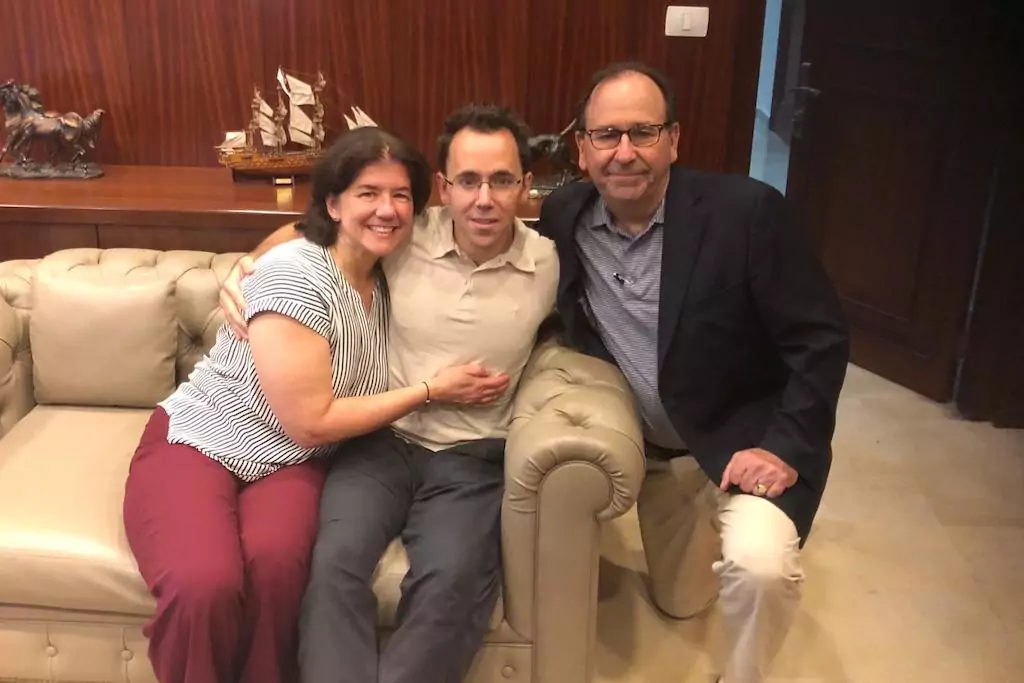
But, the “key pivotal moment” in securing his release was his sister, broken down with the emotional burden of not knowing where her brother was in Syria, reaching out to her roommate from college simply to vent. Unbeknownst to Goodwin’s sister, Stephanie, her former roommate, also named Stephanie, had an uncle whose longtime Army friend had risen the ranks to the head of Lebanese internal security. The family credits Gen. Abbas Ibrahim, who was only informed of Goodwin’s case by his longtime friend, for getting him out of Syria.
“This is a situation where the FBI, the CIA, the Pentagon, the White House, Pope Francis was involved, Russian intelligence, Middle East NGOs, private sector security companies — the list goes on — they were all essentially struggling to be effective,” he said. “But my sister’s college roommate could identify a path to get an American hostage released from captivity. And for me, I believe it was divine. There’s really no other explanation that, to me, makes any sense.”
CLICK HERE TO READ MORE FROM THE WASHINGTON EXAMINER
Goodwin said he believes the government has improved its handling of wrongfully detained cases, but work remains to be done.
The Biden administration recently agreed to a massive prisoner exchange with Russia that involved several other countries including Belarus, Germany, and Slovenia. It secured the release of four Americans, including Paul Whelan, who had been detained in Russia since before Goodwin was taken by the Syrians.
